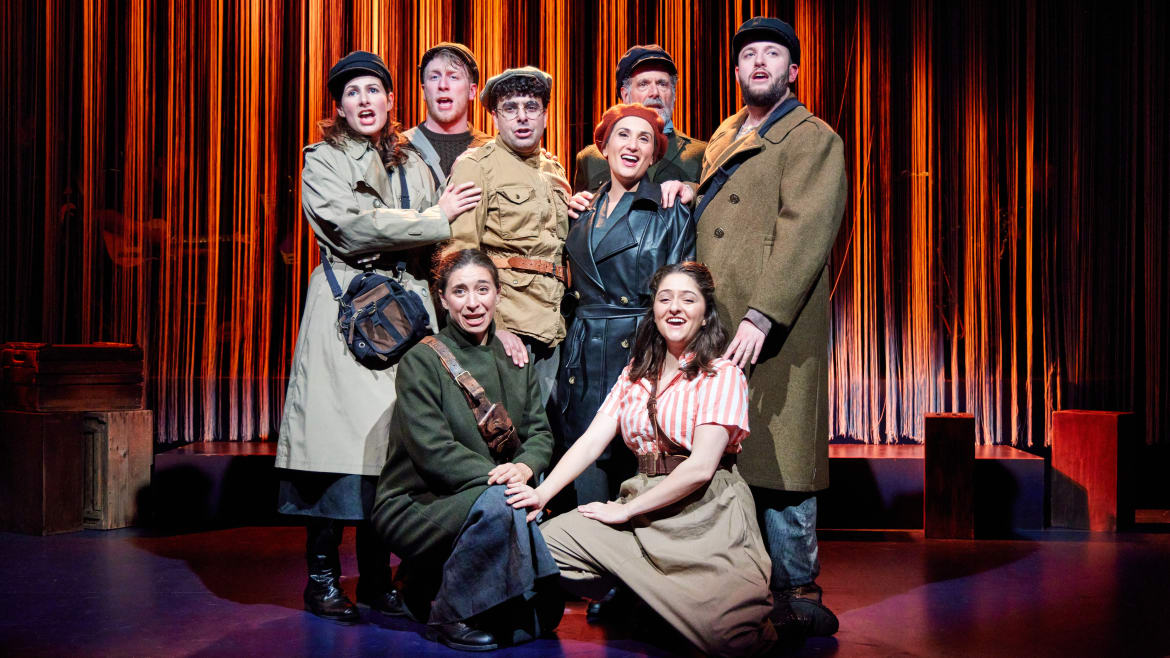Jeremy Daniel
Amid Falling Walls (Tsvishn Falndike Vent)
This show of “songs of survival” (National Yiddish Theatre Folksbiene, to Dec. 10) is a collection of Yiddish songs that are emotional and illuminating testimonials by those who experienced Nazi persecution in the 1930’s and 40’s. As one of the characters tells us, “All throughout the war, Jews sang, played music and created songs in ghettos, concentration and labor camps, in the forests, in fighting, and in clandestine cabarets and theatres.”
The show—the songs all sung in Yiddish, with a subtitled English translation—also includes first-hand testimony of Holocaust survivors through their own poetry and music. The music was curated and arranged by Zalmen Mlotek, the libretto curated and written by Avram Mlotek (his fascinating WSJ essay shows just how personal this work is), and the cast of eight directed by Matthew “Motl” Didner.

